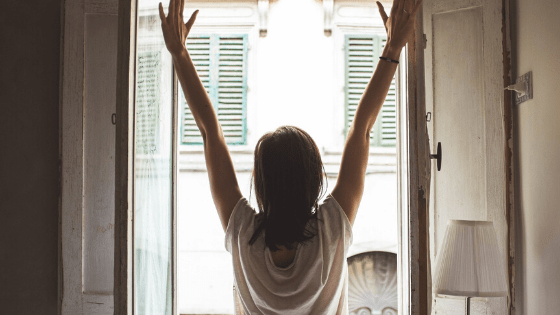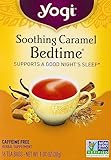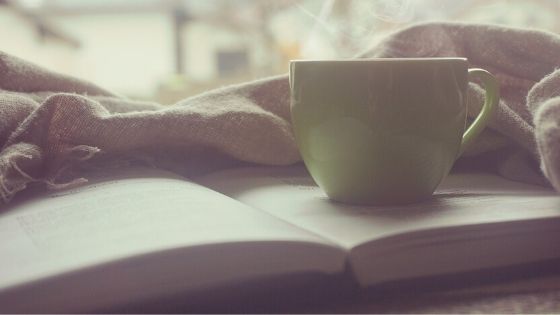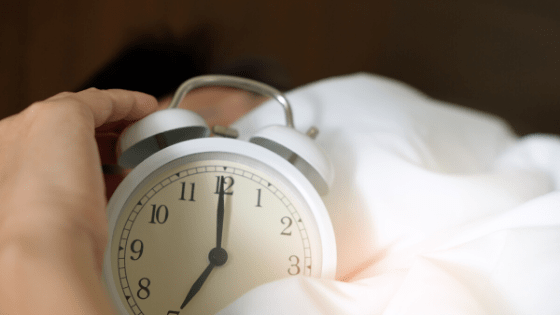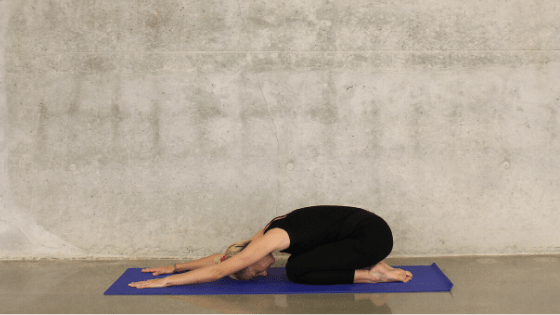I am on a mission to help my husband get better sleep this year. He has struggled with sleep issues for years, but over the past few months, his lack of sleep has been even more pronounced. Since his need for better sleep is so evident right now, I’ve been devouring books, articles, podcasts and TED talks about sleep. I’m encouraging him to try anything that could even incrementally improve the quality of his sleep. To keep track of the information I’ve been accumulating, I created a “better sleep cheat sheet.” And I’m sharing it here because I hope that it can help someone else get a little bit better sleep, and consequently, a better overall quality of life.
Effects of Sleep Deprivation
Did you know that the World Health Organization classifies night shift work as a probable carcinogen? I didn’t. There are numerous negative effects from sleep deprivation. Here is a very short, but scary, list of some of the likely effects of getting poor sleep:
- increased cancer risk
- increased cardiovascular risk
- increased risk of high blood pressure
- increased risk of diabetes
- increased irritability
- reduced memory capability
- reduced concentration
- reduced problem-solving ability
- reduced immunity
Since his shift work isn’t changing anytime soon, I am determined to create the best possible environment for the nights he has the opportunity to get good rest.
Different Sleep Issues
I remember the sleep deprivation I experienced when we first had kids. We had three children within 4-1/2 years, and there were days I felt pretty disconnected from reality after a few mostly sleepless nights in a row. Our kids have been fantastic sleepers for years now, but my husband is dealing with sleeping 3-5 hours a night, sometimes less, for days and weeks at a time. He simply can’t stay asleep. He’ll catch a nap here or there, and his sleep will improve marginally for short periods of time, but he hasn’t had a sustained 7+ hour sleep for months, if not years.
I, on the other hand, rarely have any trouble falling asleep, staying asleep, or getting back to sleep if I’m woken up during the night. But in my reading about sleep disorders, I discovered that I may have some sleep issues after all. Most mornings, when I wake up, I do not feel rested. It’s hard to make myself get out of bed. There may be a lack of quality to my sleep that I don’t even realize. Whatever I can do to get better sleep and reduce the risk of really big, scary diseases is worth trying.
I know that we are not the only ones experiencing this problem. For several years now, the CDC has been calling attention to sleep deprivation in the United States as a public health problem of epidemic proportions.
Better Sleep Tips to Try
I’m certainly no expert, but after absorbing a lot of information about sleep habits, optimal conditions for sleep, and tips for improving sleep quality, I put together a cheat sheet for myself of things to try. Many of these are well-known, proven pieces of advice, but a few might be a little “out there” to some people. We all know that alcohol and caffeine consumption can negatively affect sleep if consumed late in the day. However, I had never heard about “grounding” (actually touching the ground outside with your bare feet), or applying magnesium lotion, as a sleep aid! His sleep is already disrupted nightly, so there’s not much to lose in trying something a little off the beaten path.
Here’s a quick rundown on what we have started doing, or might try in the coming weeks.
Morning & Daytime Tips
- drinking water first thing in the morning, and increased hydration throughout the day
- focused breathing exercises
- a breakfast of protein + healthy fats
- daily exercise
- sunlight exposure
- bare feet touching the ground each day
- no caffeine after noon
Diet & Nutrient Tips
We are going to try to incorporate as many of these as possible, as often as possible to assist in improving sleep quality:
- Calcium (kale, collard greens, mustard greens, sesame seeds)
- Melatonin – food sources, not supplementation (tart cherries, walnuts, ginger, asparagus, pineapple, tomatoes, bananas, oranges)
- Omega-3s (chia seeds, pumpkin seeds, walnuts, salmon, halibut, flax seeds, fish oil)
- Potassium (broccoli, avocados, leafy greens, potatoes)
- Prebiotics (Jerusalem artichokes, raw garlic, raw and cooked onion, asparagus)
- Probiotics (sauerkraut, kimchi, pickles, miso, yogurt, kefir, kombucha)
- Selenium (sunflower seeds, beef, chicken, cremini mushrooms)
- Tryptophan (turkey, chicken, eggs, sweet potatoes, chia seeds, bananas, pumpkin seeds, almonds, yogurt, leafy greens)
- Vitamin B6 (yogurt, cashews, peanut butter, almonds, avocado, fish, spinach, tomatoes, eggs)
- Vitamin C (bell peppers, kiwi, strawberries, citrus, leafy greens)
- Vitamin D (supplement)
Evening Tips
- no screens after 9pm (60-90 minutes before bed)
- blue light blocking apps for those times when we do use screens in the evening
- topical magnesium
- keep bedroom temperature below 70° F (ideally between 62-68° F)
- massage/acupressure (see more below)
- tea with natural sleep aid ingredients (see more below)
- set alarms to correspond with 90 minute sleep cycles (e.g. 10pm-5:30am or 10:30pm-6am)
- keep the bedroom dark (cover lights from clocks, windows or other sources of light)
- aromatherapy
Tea to Try
- chamomile
- kava kava
- Valerian root
- Yogi soothing bedtime tea
Acupressure
Do your research on this. I’m linking to this article because I like the helpful diagrams showing where the pressure points are, but there is certainly no harm in trying a little relaxing shoulder or neck rub to help induce sleep too!
- an mian (behind earlobes)
- HT7 (wrist, below hand on pinky side)
- LV3 (where skin of big toe and next toe connect)
- KD3 (just above the heel on the inside of the foot)
- yin tang (center of eyebrows, just above nose)
We also use an acupressure mat like this one. It’s lightweight, so fairly portable, and works to lay on or use in a chair.
Overall Good Health
We’re starting by getting to bed earlier, and more consistently at the same time each night. Next comes increased water consumption, exercise, and healthy foods. Plus, decreased caffeine, alcohol, and screen time. That sounds like a recipe for overall good health to me!
Feel free to download and use my Better Sleep Cheat Sheet for yourself. This isn’t a checklist of things to do every day, but a front-of-mind reminder of options and tactics to have in your toolbox. Here’s to a better night’s sleep…tea cups up!

Want a black and white printer-friendly version? Here you go…



